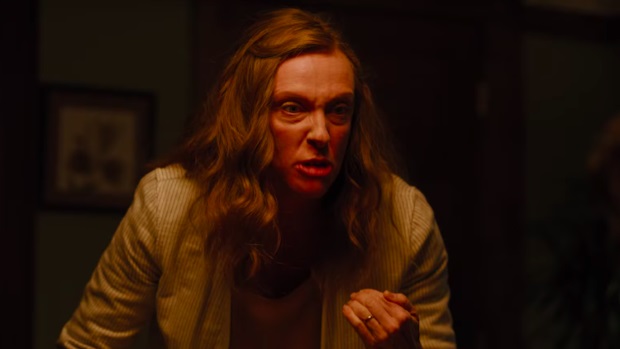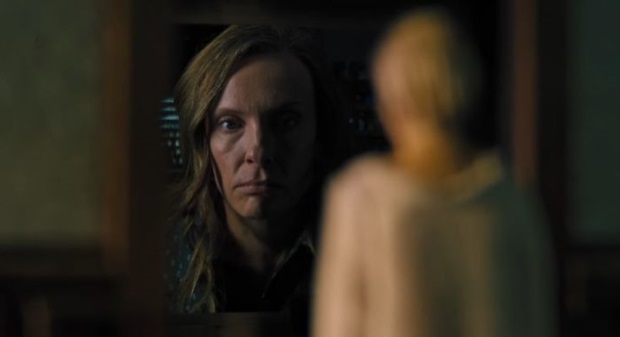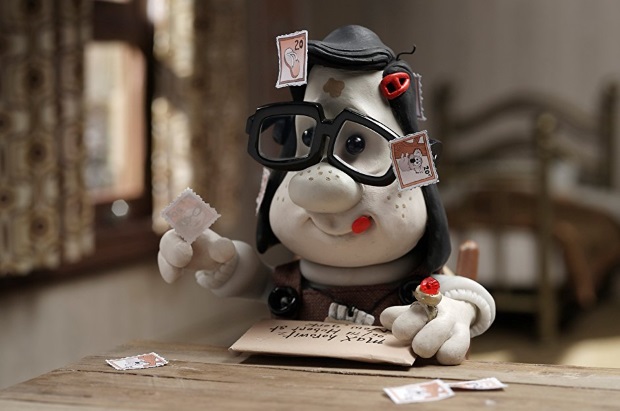Toni Collette interview: Hereditary
Toni Collette chats to us about her role in the brilliant Hereditary, Mary & Max and much more...
Huge fans of Toni Collette here. Ever since we first saw her on the big screen in the wonderful Muriel’s Wedding, she’s built a strong collection of characters and an impressive range of screen roles. New horror movie Hereditary may just be one of her best, though. We got to chat to her about the film when she popped over to London…
I presume your day has been long and brutal, filled with interviews…
It’s been pretty full, my schedule since I arrived in London, but I’m happy to talk about this movie, because I had such a great time making it.
You’ve created something that’s an incredible movie, but it’s not an easy watch. Did the fact that it was such a fun experience mean it was easy to then snap into these moments of sheer, ruthless unpleasantness for your character?
To be honest it really was, because I think I was working with such incredible material, and when you’ve got that in front of you, and it just feels so evocative and clear, and Ari’s vision was so bold and brave and exciting to be a part of, it felt like a wonderful challenge. It was exhausting at times, because it is relentlessly emotional and intense, but there was something very satisfying about it.

I understand that you don’t enjoy talking about the process so much, but I’m curious if the experience of being an actor in a film like this is significantly different from acting in different genres of film, or whether it’s all the same, going to work and doing the same thing?
First of all, one thing I loved about this film is that it’s not simply one genre. I know that it’s a horror film, and I know that it has absolutely horrific elements to it, but I also found it really interesting, because it’s quite profound, and very realistic in terms of looking at the process of grief, and family dynamics, and how they change when you’re trying to navigate something so painful and personal, and it was written in such an honest and pure way, there was something so truthful about it, and I think on any job that I have, even if its comedy, I never, ever play for laughs, and I obviously don’t want to overdramatise any kind of emotion. If the writing is good, you just play it straight, and it’ll come through.
It’s interesting you mention that it’s not a horror, because I was just in the room with Ari [director], and we were discussing how it’s really a family melodrama. It hits beats that you would expect from the grittiest, most brutal, hard-hitting drama.
Yeah, I agree, it is classic family drama that goes to unexpected places. It’s so exciting to work on something that feels original, and not boxed in, and not easily categorised.
I’m curious how – I hope that you’ve not gone through some of the brutal experiences in the film – I’m curious what you draw upon to create the performance you do.
I never directly draw upon anything from my own life, I think people imagine that’s what actors do, but that, somehow feels like a betrayal of my own life, and people in my life, so I really don’t tend to do that. I think more than anything, what I do when something is that well written, and I feel I understand it in a deep way, is I just develop a sense of empathy for that person, and I put myself in their position, and it really tends to flow very easily, especially with something as great as this.

It does feel a little like there could have been another version of this film…
I love that ambiguity. When things start to escalate, and it feels like she’s maybe losing her mind rather than finding some kind of truth, I love that it’s so questionable. And she does have a history of mental illness, a couple of episodes in there where she wasn’t so healthy, and you could easily assume that, and her husband does, in fact, assume that. But I guess, when you’re finding out – this woman has lived with an ominous, all-pervasive feeling that there was something wrong, without being able to put her finger on it for her entire life – when she finally starts to understand what is happening, it would send you into that state, I think it’s completely realistic to do that, to feel – excited isn’t the right word – I guess, agitated by it.
You can’t be unaware of the praise you’re receiving in reviews.
I’m not unaware, people are trying to make me very aware of it.
Well, I think you deserve it.
Thank you, I do appreciate that.
You received an Oscar nomination for your role in The Sixth Sense, didn’t you?
I did, yes.
Why do you think people notice how good your performances are in horror films, in particular?
Sixth Sense is the only other one, I don’t know whether that’s the case to be honest. I just think that an actor is only as good as the material they’re working with, and the opportunity they’re given, and I really, in this film, am able to go to town. In The Sixth Sense, that was an incredibly moving trajectory for my character as well. I think people in general, when they’re looking at any kind of art, respond to honesty, and I try to make my work as honest and transparent as possible. If it’s anything other than that people don’t allow themselves to be drawn into the movie, and I’ve done a disservice to the film as a whole.
It seems like you never stop working, just looking at your IMDb page, you seem to be in five or six films a year.
It probably seems like a lot, but some of the films I’m only on them for a couple of weeks at a time. Something like Hereditary [at this point Toni checks the duration of the shoot with her publicist] was 34 days, but other films I’m only on them for a short period of time. So it might appear that I’m always working, but I couldn’t do that. At this age I’ve got other things I need to do in my life, and other people I need to be with, so I make the most of my experiences at work, but they’re not always as all-consuming as this job.

I know you discussed the impact of Muriel’s Wedding on The Graham Norton Show. One of the films you did some time after that was the wonderful Mary And Max, which is one of my favourite films of all time. Unlike Muriel’s Wedding, that film didn’t really find the audience it deserved, and I’m curious how you feel when that happens.
I have complex feelings about that, because – very selfishly – as an actor, the experience that I take away is what feeds me, and that’s all I need from it. The actual work, the actual making of the film is my sole experience, the life it has beyond that is really nothing to do with me, although you do have a certain amount of hope that people will appreciate it and connect with it in the same way that I might have, and that you all have. When everyone gives so much, and spends so much time away from their families, it’s like complete dedication. The hours are bonkers, it’s not a normal job, for everybody working on it, not just the actors.
When you put that much into it, and then for whatever reason, it doesn’t fly – and I have to say, more often than not it has to do with the distribution and people’s inability to make people aware that it’s even out there – can be very frustrating. And to be honest, it’s really exciting to be in a film that people are aware of and excited about, because I have done a bunch of films that, for whatever reason, even though they’re wonderful films, haven’t found their audience, it’s a very common thing. It’s a very unusual and rare experience to be in something that has this much excitement around it.
Are you able to watch your own performances back and appreciate them?
Very easily. I like to see how things have come together. Everyone’s put so much into it, you wanna see if it comes to fruition. Everything everyone’s contributed, all the intention, and the decision making, you want to see the final product, and see if it worked, or not. Maybe both.
Toni Collette, thank you very much!
Hereditary is in UK cinemas from Friday.